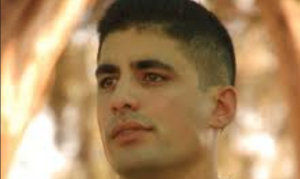
Iraq war veteran’s online Marijuana distribution business

US government continues to wage feckless war on cannabis, technology entrepreneurs like Socrates Rosenfeld was thinking about drugs, alcohol and money while his MIT Sloan School of Management class mates were filling up worksheets on discounted cash flows.
Eighteen months after obtaining an MBA, he abandoned a job with McKInsey to launch a start up of online distribution of cannabis after drawing lessons from prohibition.
“During the day I was studying disruptive technology and at night I was concentrating on Cannabis and I thought, If I could combine the two worlds, it would be a dream come true.”
His company Jane ( Mary Jane , slang for marijuana) has grown rapidly since its creation in 2015. Scott Stern, the professor at MIT who taught him and jointly wrote the case said “ Cannabis wasn’t an area I had a lot of experience in but what I loved about the company was how it explored the choices you face in how to implement an idea”.
In cannabis industry, there’s demand and supply but it’s disorganised. “ I was an athlete at West point,in the army and in Iraq. But when I returned to civilian life in 2011, I struggled to adapt.” Rosenfeld
It was his wife who introduced him to cannabis persuading him of its medicinal benefits. “ It really changed my life, help me find my balance and connect with myself and loved ones again” he said.
He was cautious about the complexities of a product which has been illegal under federal law since 1970, although the law has been liberalising for medicinal use in individual states, led by California in 1996.
After graduating Mr Rosenfeld and his classmate Scott Tracy-Inglis decided to quit their jobs and create the company and recruited Rosenfeld’s younger brother who had two computer science degrees from MIT and two fellow MBAs.
His business model was to charge a flat fee to sellers, helping link between buyers and providing efficient inventory management.
“ We are a software company that just happens to service the Cannabis industry, not a plant touching company” he said. This allowed him to raise funds and access bank support still unavailable to many of his customers. Black market operatives can’t compete with the product the sophistication and the shopping experience.
Mr Rosenfeld says his 80, 000 products sold through 500 dispensaries in 19 states to 100, 000 clients with millions of sales revenue each month.
Prof Stern has used the case study to discuss pats of the market of the company one should focus on, closer to dispensaries or consumers, nationally or locally, to explore either commission based pricing or other sources of revenue.
“With Cannabis clubs propping up everywhere, Wharton, Stanford and Harvard reached out us and students are interested in internships and trying to understand our business model” Prof Stern said.
